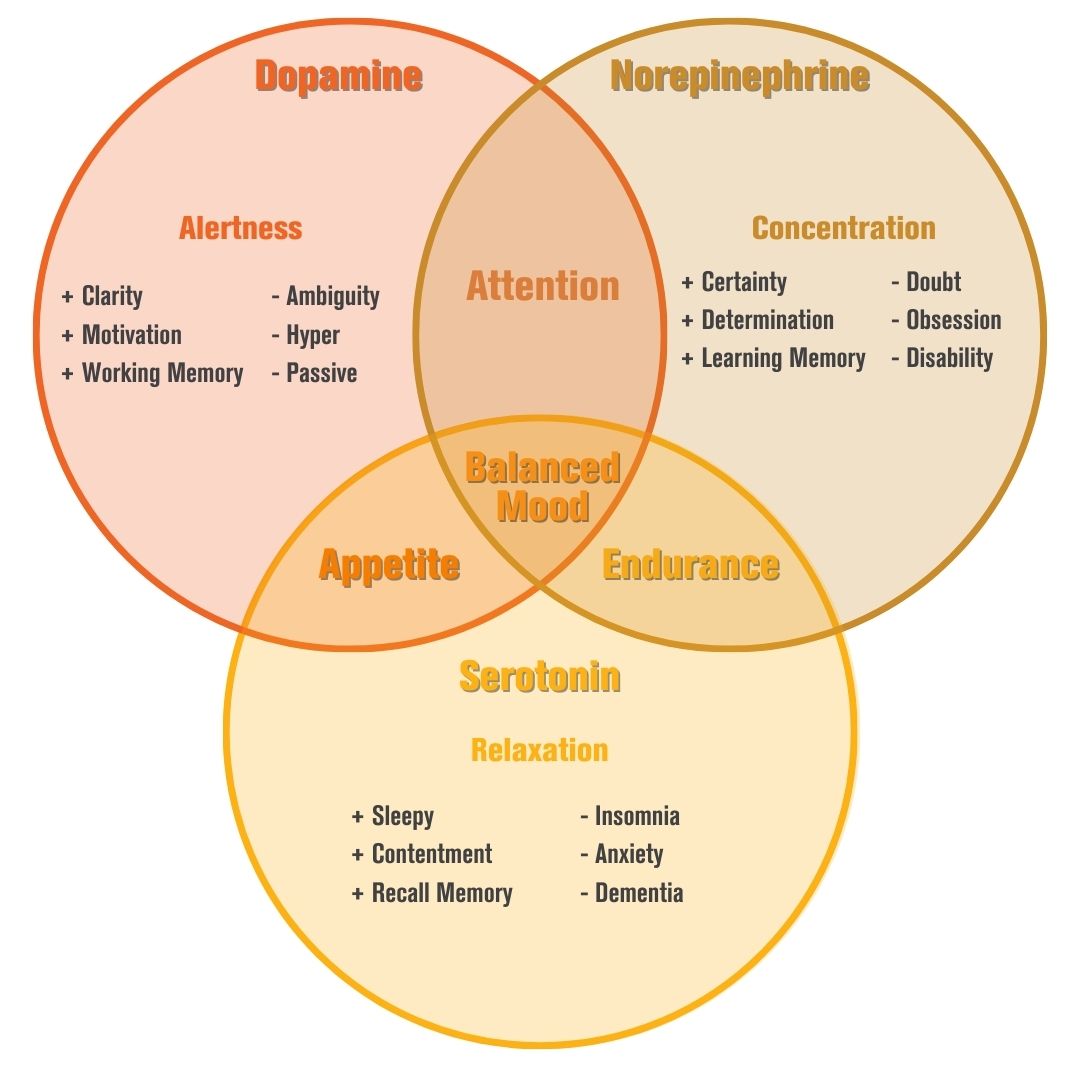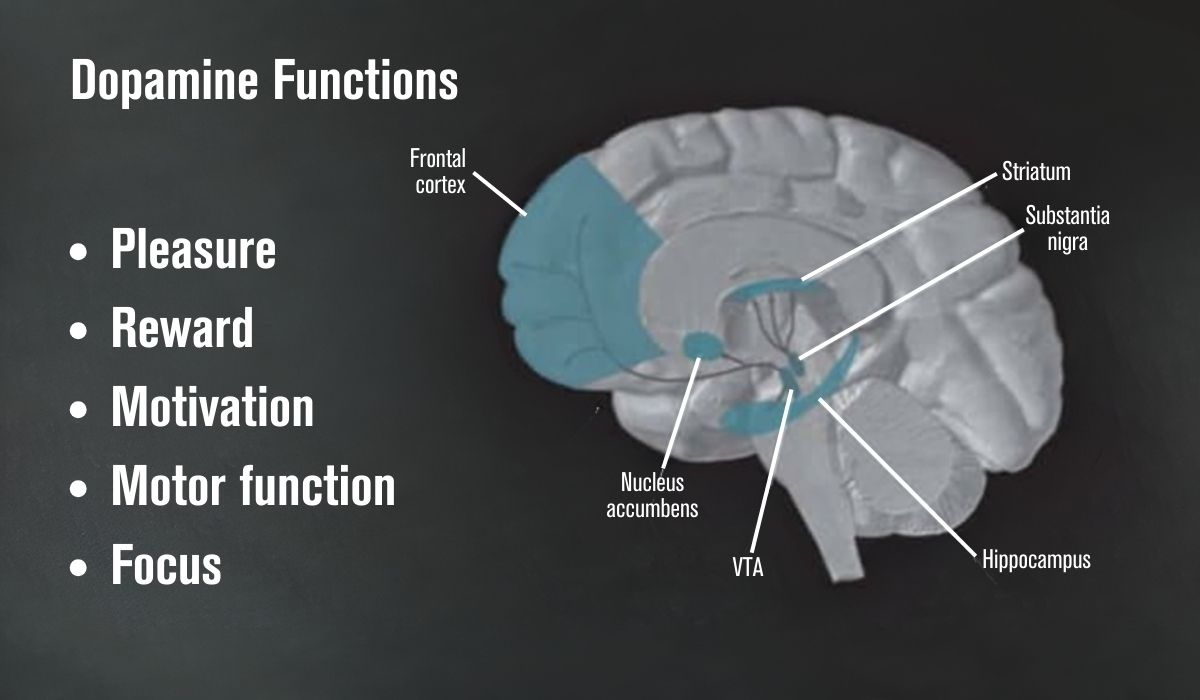Our Brain and the Nervous System
The human brain and our nervous system controls all the organs in our body and communicate to each other through chemicals (molecules). These chemicals play a particularly important role in generating all human emotions and responses, everything from sleep to wakefulness, creativity, stress, calmness, sadness, excitement, energy, happiness etc.
Scroll Down
The chemical dopamine, along with norepinephrine (norepinephrine) and serotonin (our neuromodulators) interact in the human body and produces positive results, such as improving overall health (mental and physical), motivation, and performance. Therefore, releasing these chemicals in the body is extremely desirable in reaching someone’s potential and can be achieved by implementing employee engagement strategies through recognition and rewards.

The Power of Dopamine
Dopamine is a chemical in the human body that is often associated with overall wellbeing and joy. In fact, people deficient in dopamine are depressed, have trouble with focus and motivation, and are likely to be chronic procrastinators.
Dopamine makes us feel good inside when something pleasant happens or when we go through a positive experience. When released, it gives us that feeling of energy and happiness. For example, when we see a puppy running around at the park, laughing at a friend’s joke, eating your favourite meal, receiving praise, and earning a reward all releases dopamine.
Recent studies and expert commentary from thought leaders in neuroscience suggest that the molecule dopamine is much more than “just feeling good” but acts as a deciding factor in the human body that governs motivation and craving. The neuroscience community continues to make significant breakthroughs in understanding the role of dopamine and is considered the most powerful neuromodulator in the human body.
Studies around dopamine
A study from the University of Prague, European Journal of Physiology showed that after a painful ice bath stimulus, the amount of dopamine released went up 250% above baseline. That is not because the ice bath itself evokes dopamine release, but the pain experienced during the ice bath evoked dopamine release after the pain was over. As they deliberately got more cold exposure, they always became more comfortable in the cold and started to use colder temperatures with more confidence, just like exercise.
This study showcased that the more friction and pain experienced in the pursuit, the greater the dopamine reward you will get later (greater the effort, the greater the self-fulfilment). The aim of the pursuit is the motivator.
Another study conducted an interesting experiment where groups of rats in separate cages were trained to run to a lever that released food. Naturally, every time the rats got some food, a little bit of dopamine was released (felt pleasure). The next part of the experiment involved depleting one group of rats of dopamine (injected neurotoxin into the brain) to see any difference in behaviour between the rats with and without dopamine.
After the neurotoxin was injected, the rats would press the lever if they were placed next to it. However, when the rats were placed further away from the lever, the rats with no dopamine did not move to the lever even though they could see it. The rats with dopamine had no issue putting in the effort to reach the lever, showing a difference in motivation and drive between the two groups.
Dr Andrew Huberman, a professor at Stanford University explains, “So the keys are to pursue rewards, but understand that the pursuit is actually the reward. If you want to have repeated wins, then what you realise is your capacity to tap into dopamine as a motivator. The molecule dopamine, when secreted in the brain, makes us pursue things, build things, create things, makes us want new things that we don't currently already have. Dopamine is responsible for that feeling of feeling great. But in addition, dopamine is what's released anytime an animal or human thinks it's on the right path. And that is very subjective.”

Relationship between Dopamine and Norepinephrine (Adrenaline)
Norepinephrine, also known as Adrenaline and the excitatory neurotransmitters, is mainly responsible for generating energy and effort. Some of the effects of norepinephrine include:
- Increase blood flow and air passages to take in more oxygen
- Reduced the feeling of pain
- Increase in strength and physical performance
- Heightened awareness and focus
Not only is effort and energy required to get started on a journey, (whether that is a task, goal, or challenge), but it gives humans that pick me up along the way to help stay on track. It is that feeling of, “let’s get up and do this / finish this!”
Dopamine and norepinephrine are closely related, sometimes referred to as close cousins or close relatives (both belong to the same class of compounds called catecholamines), where in fact norepinephrine is manufactured from the molecule dopamine. The two neuromodulators do indeed collaborate with one another. When dopamine is released, norepinephrine tends to be released. When norepinephrine is released, dopamine is released purposely to reduce over stress and agitation that comes with epinephrine. Meaning if you’ve got norepinephrine without dopamine, you feel agitation and stress without motivation. If dopamine is present with epinephrine, you’ve got the perfect combination for getting things done (energy and motivation).
Relationship between Dopamine and Serotonin
The serotonin system, when engaged, is associated with the feeling of good moods, calmness, and warmth. For example, exposure to sunlight, exercise, healthy eating, laughing with a friend and mediation releases serotonin giving you that feel good feeling. Experiencing and thinking about positive experiences also triggers serotonin.
Dopamine and serotonin are both essential neurotransmitters that work together to produce similar feelings related to feeling good. Although dopamine is primary related to reward and motivation, and serotonin is primary involved in happiness and mood, an increase in one molecule helps increase the other, therefore increasing levels of motivation and happiness.
Recognition and Rewards – The impact of Dopamine, Norepinephrine and Serotonin
As highlighted above, dopamine, norepinephrine and serotonin do not act independently. With dopamine as the driver, all three neuromodulators interact and affect each other to not only maintain a careful chemical balance within the body but enhances our emotions and desire to succeed.
Recognition
Both giving recognition and receiving recognition (in a meaningful and authentic way) activates serotonergic pathways, increasing dopamine and serotonin levels. The two chemicals work together to make us feel ‘good’. They enhance our mood immediately, making us feel happy from the inside.
Receiving Recognition
It is worth noting that the act of receiving recognition has the most potent effects on increasing dopamine and serotonin activity in the brain, compared to giving recognition. In fact, researchers imaged brain activity finding receiving gratitude created a far more positive shift in pro-social circuits in the brain than giving gratitude.
Public Recognition
Not only does giving and receiving recognition evokes dopamine and serotonin, but also observing others giving and receiving gratitude.
Rewards
Earning aspirational and thoughtful rewards gives us that extra boost of excitement and energy, as dopamine and norepinephrine is released. Yes serotonin is involved, but norepinephrine becomes more prevalent with rewards that evoke emotions and imagination. Tangible and experience type rewards through a points-based system optimises dopamine levels over time.
A research paper published by The Incentive Research Foundation demonstrates the link between dopamine and recognition programs with a points-based reward system. Not only does the recognition and points increase dopamine, but experiencing the redemption process, or even just thinking about it, releases dopamine over time. When occurring regularly, it increases our awareness in anticipating the reward for positive behaviours and achieving goals (dopamine is released at the first hint that a reward is coming). As a result, increasing engagement, retention, motivation and performance.
There is plenty of material out there referencing the impacts of building a culture of recognition has on employee happiness, engagement, performance, wellbeing, absenteeism, and overall health. Creating culture of recognition from a neuroscience perspective, activates dopamine, norepinephrine and serotonin in individuals that leads to a positive state of mind and reinforces desirable behaviours. We can demonstrate this using a simple but relatable example.
Have you ever worked tirelessly on a project and felt that you were burning out but then discovered that you had made progress, which gives you a sudden and unexpected burst of energy? That is the dopamine in your body doing its magic. You realised you were making progress on your path, so you received a burst of norepinephrine that rewarded you with more energy. But sometimes you might not realise you are making progress due to being busy or there are other matters on your mind. Receiving a recognition and/or reward from a colleague or Manager can act as that reminder and reinforces that we are on the right track, developing meaning in their efforts increasing higher life satisfaction and meaning. That realisation instils more energy in you so that you continue working towards your goals and hopefully complete them. That is dopamine working its magic.
Conclusion
The main takeaways of dopamine:
- It is not all about pleasure, it is about motivation, craving and pursuit for goals or things that are outside our own possession.
- Dopamine makes you curious about ideas and fuels your search for information.
- Dopamine is not acting alone. It works with other neurotransmitters and hormones, such as serotonin and epinephrine.
- Dopamine is associated with increase feelings of wellbeing, happiness, motivation, and energy.
- Recognition and hedonic rewards, when received authentically, increases levels of dopamine, giving people that will to repeat the behaviour in search of pleasure again.










